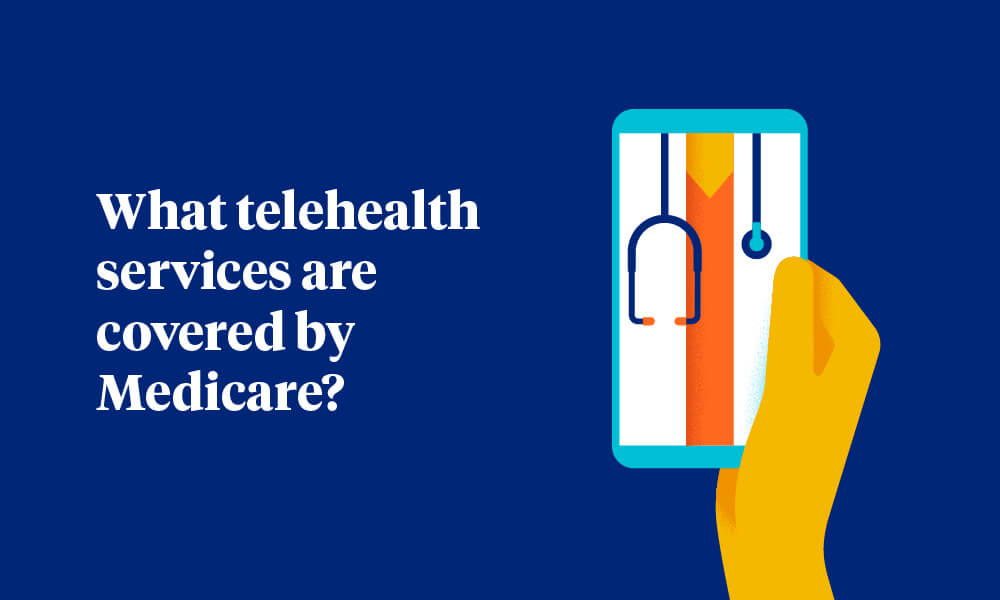
Today, more and more health care providers are offering telehealth services. Telehealth services are virtual visits with a provider using a computer, tablet or phone. Your visit might include audio and video, or just audio, but video may help your health care provider better understand your question, symptoms, concerns and needs.
Because telehealth is still relatively new, you may be asking “Does Medicare even cover telehealth items?” Here’s how Medicare coverage for telehealth works.
Medicare Part B will cover some telehealth services
Medicare Part B will cover telehealth services like routine office visits, psychotherapy sessions and consultations if they are provided by an eligible provider who isn’t at your physical location. Medicare Part B will also cover telehealth services to enable a rapid diagnosis, evaluation and treatment of symptoms for acute stroke. Telehealth services from home are also covered for people who are being treated for substance abuse or co-occurring mental health disorders.
Always check with your provider to ensure the telehealth service you want is covered before using a service.
NOTE: As of 2020, Medicare Advantage plans may offer additional telehealth benefits not covered by Part B. Benefits will vary by plan and provider, may be available from a variety of health care providers, and can be used at home versus going to a health care facility.
Geographic location may impact Medicare coverage for telehealth services
If you live in a rural area, under certain conditions, telehealth services are covered if you’re at a doctor’s office, hospital, critical access hospital (CAH), rural health clinic, federally qualified health center, hospital-based dialysis facility, skilled nursing facility or a community mental health center.
As of 2019, telehealth services received at a renal dialysis facility are also covered by Medicare Part B.
Again, check with your Medicare plan provider and health care provider to learn if and how each service may be covered.
Medicare also covers virtual check-ins and E-visits
Virtual check-ins and E-visits are not categorized as true telehealth services, but Medicare Part B will cover both.
Virtual check-ins allow you to talk with your doctor and some other practitioners (e.g. a nurse practitioner or physician assistant) using your phone, an integrated audio/video system or recorded video without going into the physician’s office. You may receive a response via phone call, secure text message, email, using a patient portal or a provider visit. Unlike telehealth services, virtual check-ins come with certain stipulations.
- You must talk with the doctor or other practitioner to start a virtual check-in
- Communication during a virtual check-in can’t be related to a recent medical visit (within the last week) and cannot lead to a medical visit within either the next 24 hours or the “soonest appointment available”
- Verbal consent is mandatory and must be documented in your medical record
E-visits utilize an online patient portal to allow you to communicate with your doctor or other provider. Similar to a virtual check-in, you must talk with the provider to start an E-visit. The following health care professionals can provide E-visit services:
- Doctors
- Physical therapists
- Occupational therapists
- Speech language pathologists
- Nurse practitioners
- Physician assistants
In special circumstances, clinical psychologists and licensed clinical social workers can also be seen via an E-visit.
Telehealth can services offer an easy way to stay on top of your health care needs from home. Contact your health care provider today to learn more about available telehealth services.
About Medicare Made Clear
Medicare Made Clear brought to you by UnitedHealthcare provides Medicare education so you can make informed decisions about your health and Medicare coverage.
Get the latest
Boost your Medicare know-how with the reliable, up-to-date news and information delivered to your inbox every month.
*All fields required